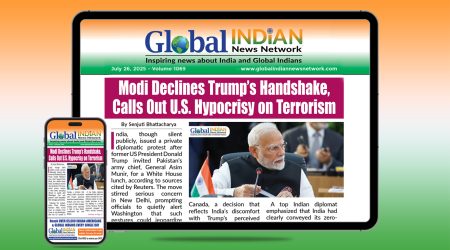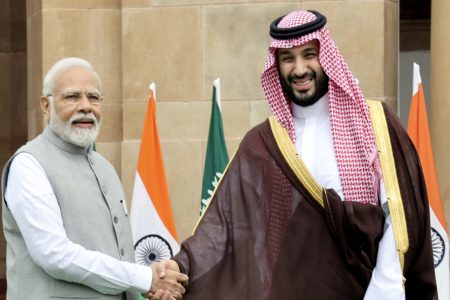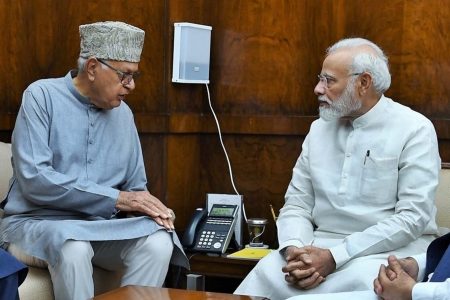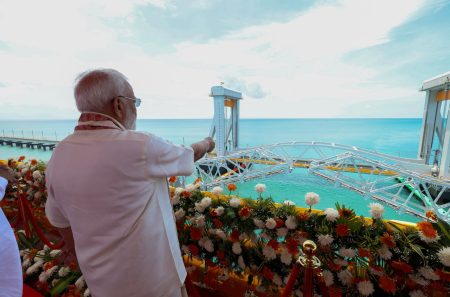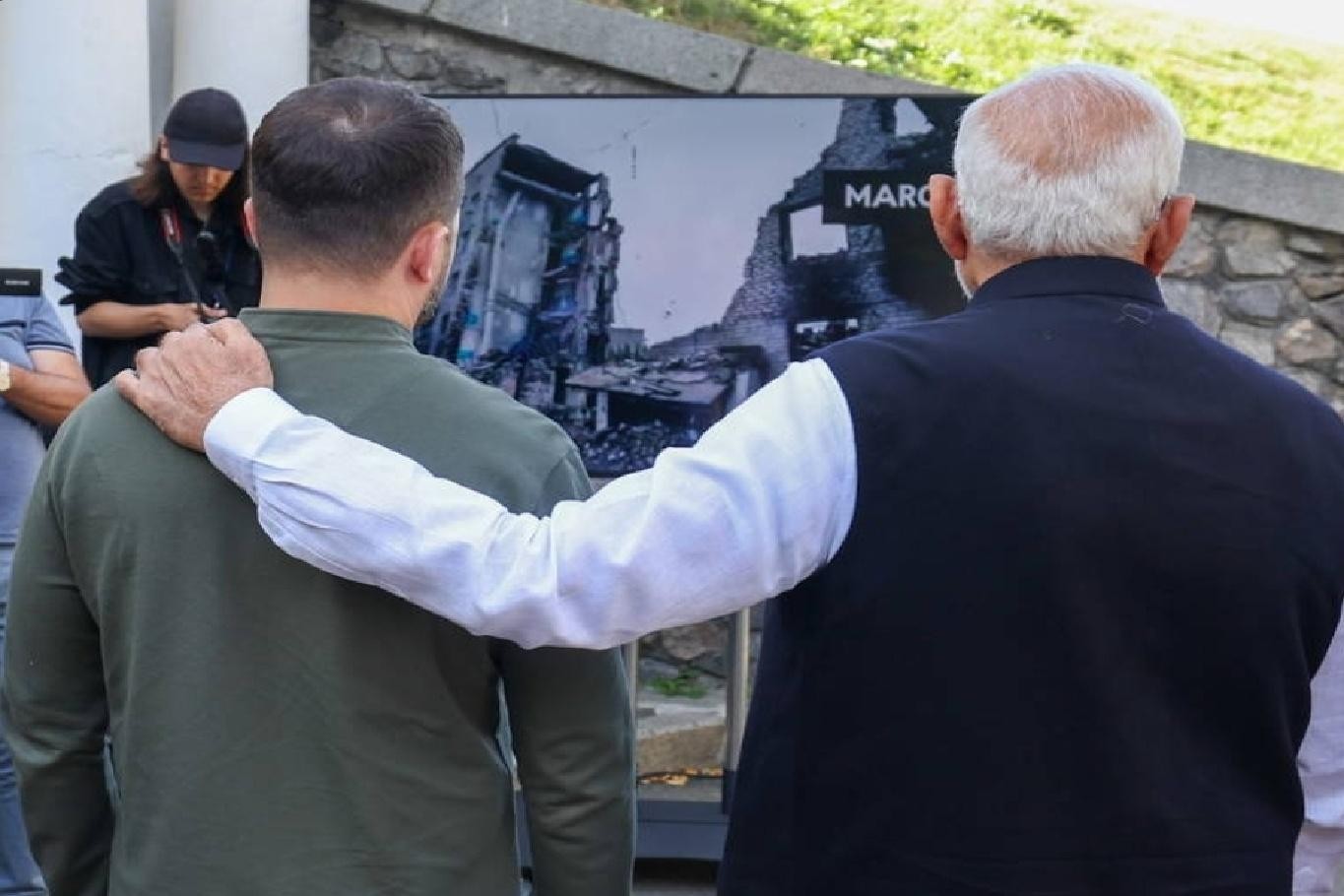
On Friday, Prime Minister Narendra Modi made a historic visit to Kyiv, where he met with Ukrainian President Volodymyr Zelenskyy amidst the ongoing conflict in the country. The two leaders shared an emotional moment as they paid tribute to the fallen children at the Martyrologist Exposition in the Ukrainian capital. PM Modi embraced Zelenskyy, offering a comforting hand on his shoulder as the Ukrainian President became visibly moved by the occasion. This poignant gesture set the tone for their high-level discussions, which were closely watched for Modi’s position on the Russia-Ukraine war.
This visit marks the first high-level diplomatic engagement from India since Russia’s invasion of Ukraine in 2022. It comes just over a month after PM Modi’s meeting with Russian President Vladimir Putin, a visit that had drawn criticism from Zelenskyy. PM Modi’s journey to Kyiv involved a 10-hour train ride from Poland aboard Train Force One, where he was warmly greeted by Ukrainian officials and members of the Indian diaspora upon his arrival.
“Reached Kyiv earlier this morning. The Indian community accorded a very warm welcome,” Modi shared on X (formerly Twitter). During his stay in Ukraine, the Prime Minister’s engagements were expected to cover a broad range of bilateral topics, including political, trade, economic, and cultural exchanges, as well as humanitarian assistance. India aimed to reassert its stance on dialogue and diplomacy as the preferred path to resolving the conflict.
Following his arrival, PM Modi also paid floral tributes to Mahatma Gandhi, underscoring India’s commitment to peace and non-violence. His visit to Ukraine was scheduled to last approximately seven hours before he was set to depart via Train Force One, retracing his journey back to Poland.
The significance of PM Modi’s visit to Ukraine cannot be overstated. Coming shortly after his trip to Russia, where discussions focused on boosting bilateral trade and cooperation in various sectors, this visit highlighted Modi’s unique position as one of the few global leaders to engage with both Russia and Ukraine since the war began. As the first Indian leader to visit Ukraine since diplomatic ties were established in 1992, Modi reiterated India’s belief that only dialogue and diplomacy can bring an end to the conflict.
The international community, particularly the US and Russia, closely monitored Modi’s talks with Zelenskyy, given the ongoing conflict was at the forefront of their discussions. Modi’s visit underscored India’s readiness to play a constructive role in facilitating an early resolution to the crisis.
At a press conference in Warsaw alongside Polish PM Donald Tusk, Modi emphasized India’s concern over the conflicts in Ukraine and West Asia, reiterating that no conflict can be resolved through warfare. He expressed India’s support for dialogue and diplomacy, offering India’s cooperation in restoring peace and stability.
Through his visits to Poland and Ukraine, PM Modi signaled India’s intention to strengthen ties with Europe. In Poland, he had emphasized India’s policy shift towards maintaining closer relations with all countries, moving beyond its historical ties with Russia and fostering stronger connections with European nations, as part of its broader vision to become a “Vishwabandhu” or global friend.

